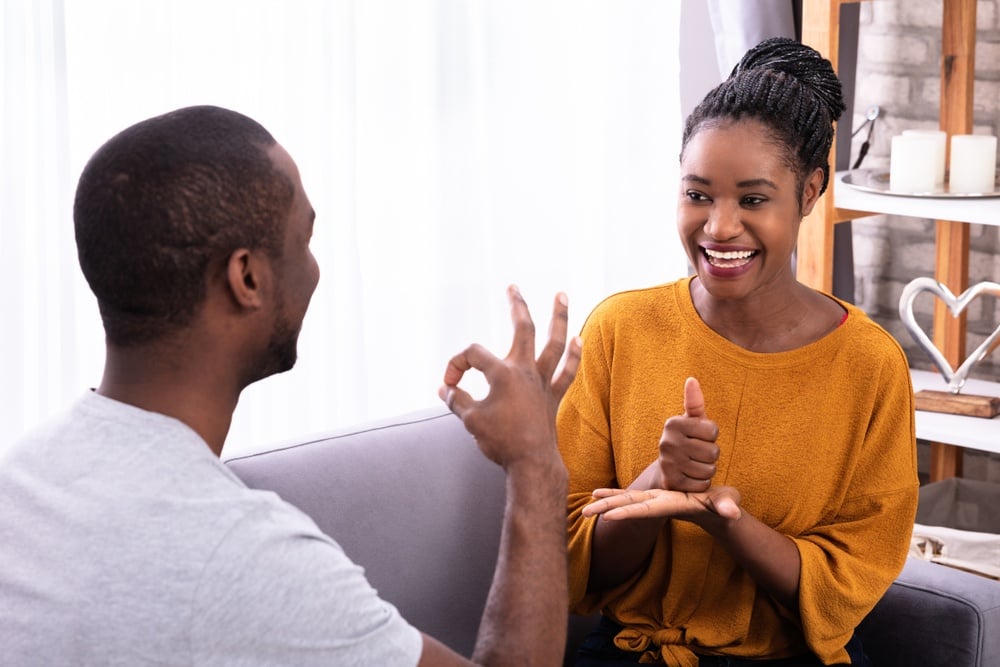Disability and sexual confidence
Most young people struggle to feel comfortable in their own skin, no thanks to social media. Unfortunately, when you have a disability that feeling tends to be amplified. But know that you’re not alone. The Mix looks at how you can regain or build your sexual confidence if you’re affected by disability.

How disability can affect sex
Some people are born with a disability, but others may be affected by one later in life. Whether you’re hearing or speech-impaired, have a learning disability, or you’re a wheelchair user, different forms of disability and illness can affect the way you have sex, or the amount you do it. Your sex life could also be affected by side-effects of your medication, or psychological problems, such as anxiety about your performance and how your body may react.
Roughly 50% of disabled people are not in a sexual relationship as a result of the stigma surrounding disability and sex. This is a startling figure which shows just how much a lack of education and understanding can impact someone’s life. Everyone should have the option of enjoying sex and intimate relationships. Unfortunately our society has historically neglected to provide sex education for anything other than a straight, able-bodied couple resulting in a taboo around any other type of relationship.
“I have a physical disability, but I’m not sexually active so I’m not quite sure how it’s going to affect me,” says Beth, 21. “I have Hypermobility Syndrome, which means my joints have an ‘unnatural’ range of motion which causes chronic pain. I’ve no idea what it’s going to be like to have sex… yikes.”
For some people, it may not just be the actual act of sex that sparks feelings of insecurity. You could be worried about whether you’re deemed attractive to the opposite sex or if you’re even able to have children.
How to find help
There are various illnesses and disabilities that may have an impact on your sexual confidence. Depending on what affects you, it could mean you have a low libido or decreased genital sensation, sexual feelings and/or sexual response. More specific symptoms relating to your condition or disability could leave you feeling stressed, depressed and angry, and generally lacking sexual confidence in the bedroom.
Put all this together and it’s not surprising that there may be periods of abstinence in your life. This is especially relevant if you’re still coming to terms with a disability. You may also have fears of being isolated, probably even more so if you’re confused about your sexuality. Lucky for you, we’re always here with a handy article to help. Read this one if you wanna find out more about sexuality.
Remember, there are people who can help you in all these areas and you’re not alone in having these feelings. You can always contact our free support services. Outsiders, a self-help group for disabled people, also publishes a number of useful leaflets on its website to help young people out. We recommend you check out one called Preparing for sex. Alternatively, if you want to speak to someone in confidence, call the Sex and Disability Helpline on 07872 681 982.
Talk about sex with your partner when you have a disability
It can be very distressing if you’re worried about something going ‘wrong’ during sex. This is where communication with your partner is absolutely crucial. If you’re uncomfortable with something you should let them know. Hopefully they’ll be supportive and sensitive if things don’t go exactly as planned. If they don’t understand, it may be worth thinking about whether they are the right person for you. It’s important to be with someone who understands and responds to your needs.
Finding the right person
Meryn is 25 years-old and has hemiplegia, a condition which weakens one side of the body. “I’ve always felt self-conscious about people’s first impressions of me. The first thing they’d notice would be my walk or my hand,” she says. “I always assumed that any relationships would have to develop from friendships. I thought that my condition would put people off from a more ‘instant’ attraction.
But that wasn’t the case! I got together with my partner the first time I met him, and even though we were both drunk, we exchanged numbers the following morning and are still together six-and-a-half years later. So it’s safe to say that he didn’t wake up and think ‘What am I doing with her?’
“Because of my hemiplegia, it makes me a lot more one-handed than most people. On occasion I’ve worried whether that makes me disappointing during foreplay, but the fact that my boyfriend doesn’t seem to have any complaints suggests that it’s mostly me being paranoid.”
Next Steps
- Outsiders run the sex and disability helpline 07770 884 985
- Youreable is an online community forum for disabled people.
- Stars in the sky is a friendship and dating site for people with learning difficulties living in London.
- Chat about this subject on our Discussion Boards.
By Julia Pearlman
Updated on 06-Nov-2021
No featured article








